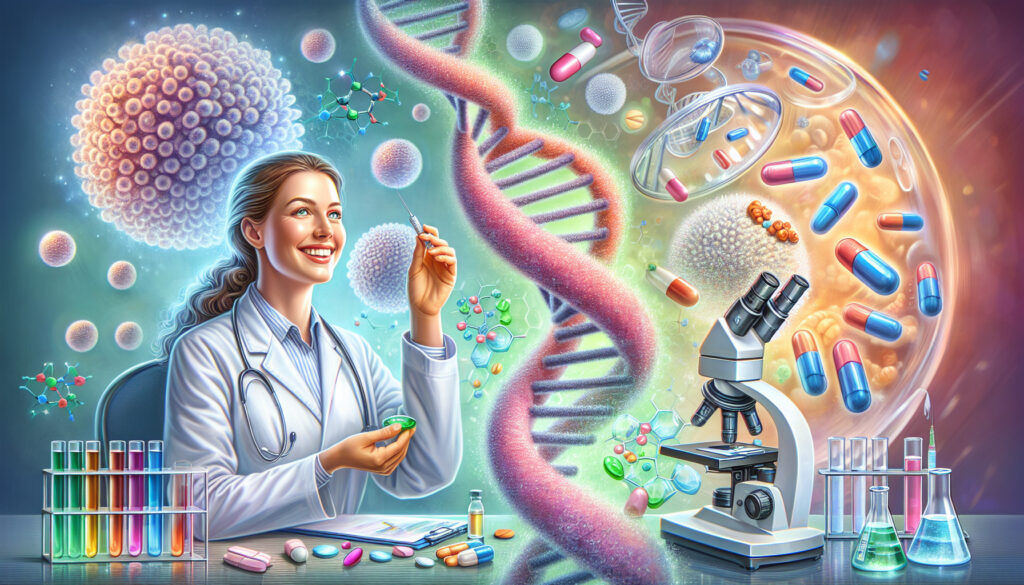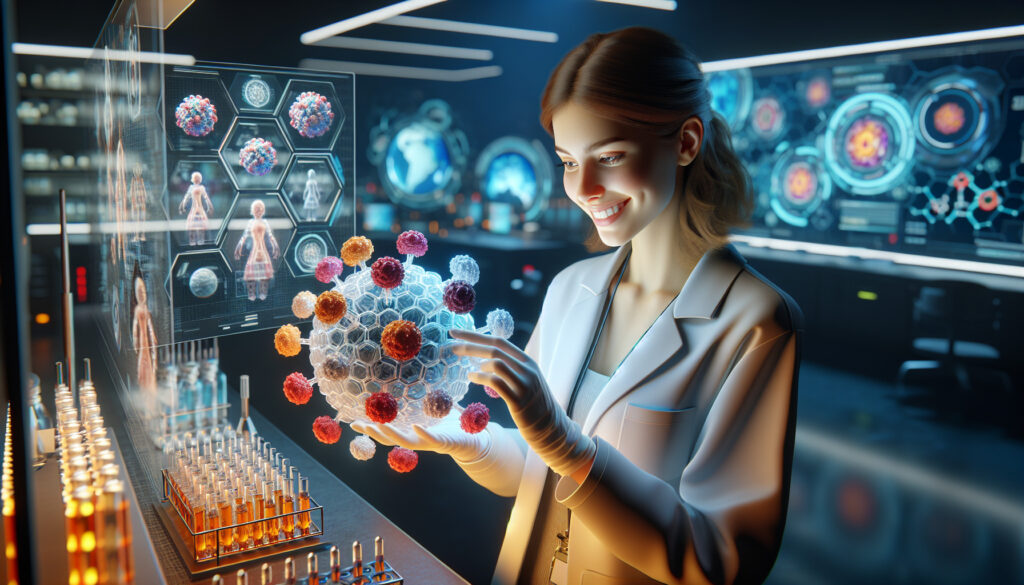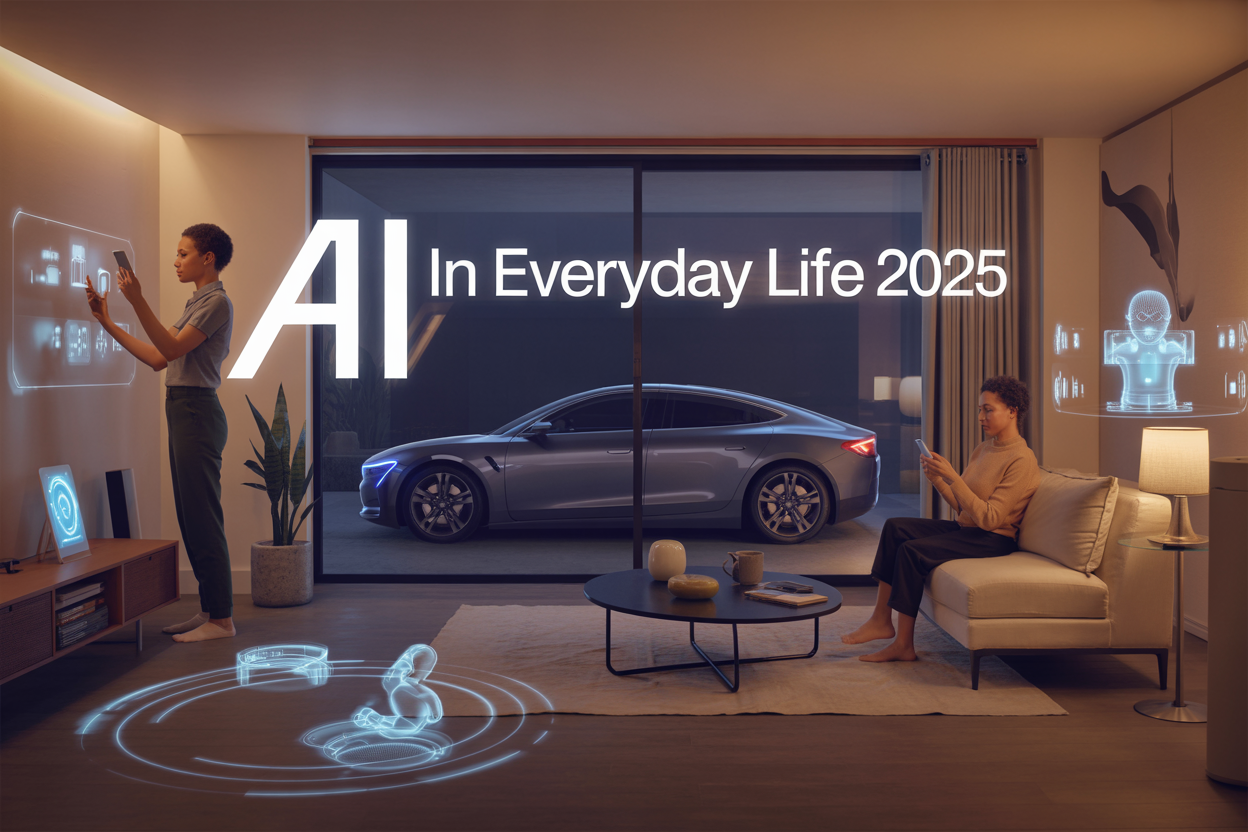
How AI is Changing Everyday Life: What You Need to Know in 2025
AI in everyday life has moved beyond science fiction into your daily routine. Artificial intelligence 2025 brings practical changes that affect how you work, shop, travel, and connect with others.
This guide is for anyone curious about how AI technology daily life integration impacts their world. You don’t need a tech background to understand these shifts – just an interest in staying current with the intelligent technology lifestyle emerging around us.
We’ll explore how AI transforms your daily communication through smarter messaging and social platforms. You’ll discover how AI shopping experience technology personalizes your purchases and streamlines buying decisions. We’ll also cover how smart home AI creates seamless living experiences that adapt to your preferences and routines.
These artificial intelligence trends 2025 aren’t coming someday – they’re happening now and reshaping how you live.
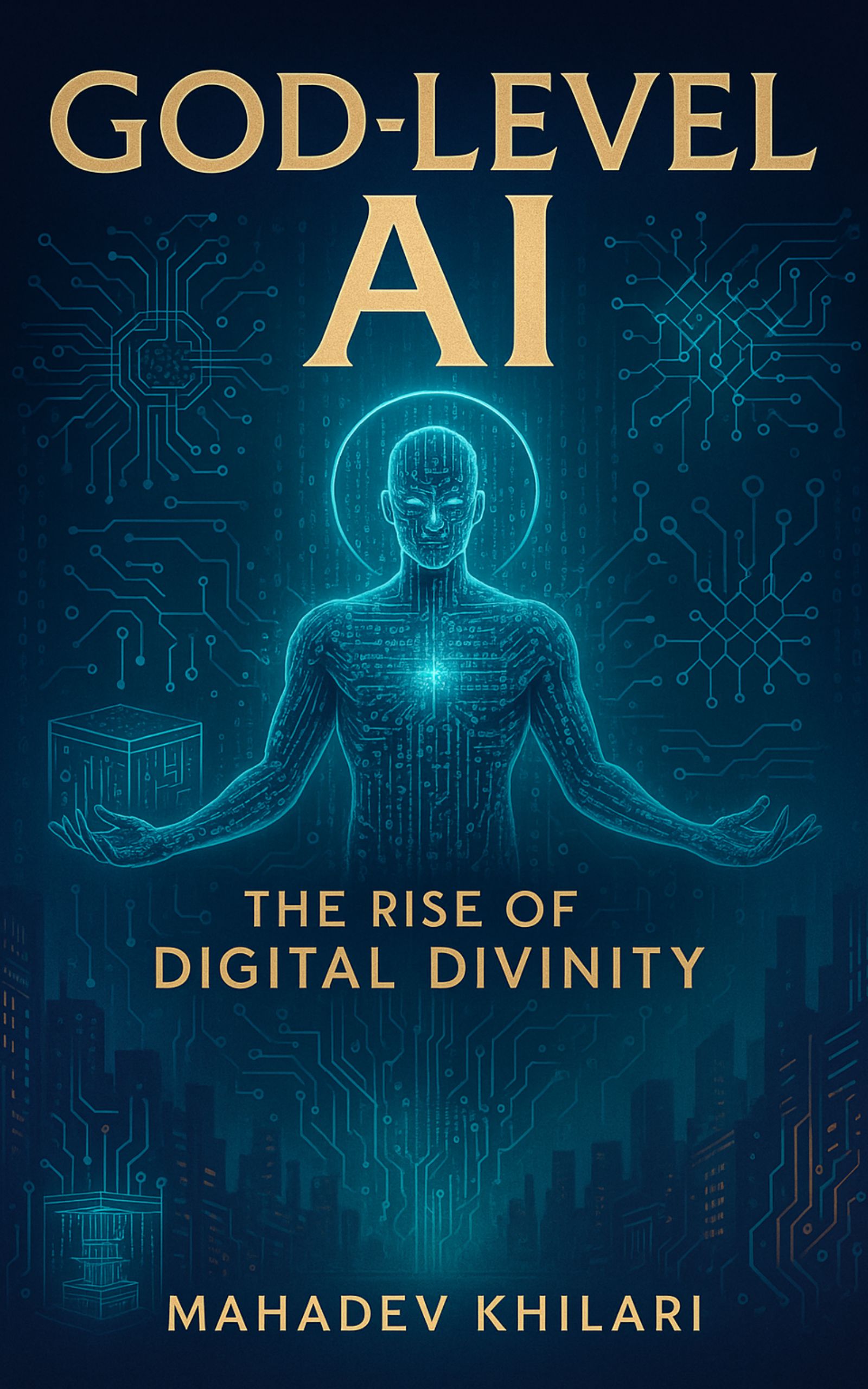
AI Transforms Your Daily Communication and Social Connections

Smart messaging apps predict and enhance your conversations
Your smartphone keyboard now knows what you want to say before you finish typing. AI in everyday life has revolutionized messaging through predictive text that learns your writing patterns, favorite phrases, and communication style. Apps like WhatsApp, iMessage, and Telegram use machine learning daily use algorithms to suggest entire sentences, perfect your grammar, and even recommend the right emoji for your mood.
Smart Reply features analyze incoming messages and offer three contextually appropriate responses. When your friend asks “Want to grab coffee later?”, your phone instantly suggests “Sure, what time?”, “Can’t today, maybe tomorrow?”, or “Yes! Where should we meet?” This AI personal assistant functionality saves time and makes conversations flow naturally, even when you’re busy.
Advanced messaging platforms now detect emotional undertones in your conversations. If someone sends a stressed message about work, the app might suggest more supportive response options or remind you to follow up later. Grammar correction happens in real-time, while tone adjustment features help ensure your messages convey the right feeling – professional for work chats, casual for friends.
Real-time language translation breaks down global barriers
Language barriers are disappearing thanks to AI technology daily life integration in communication apps. Google Translate now offers real-time conversation translation through your smartphone camera and microphone. Point your camera at a foreign menu, street sign, or document, and instantly see the translation overlaid on your screen.
Voice translation has become remarkably sophisticated. During video calls, platforms like Skype and Zoom provide live subtitles in multiple languages. You speak English, your international colleague hears it in Spanish, and their response appears as English subtitles on your screen. This technology works for over 100 languages and continues improving accuracy daily.
Travel communication has transformed completely. Your phone becomes a universal translator that handles everything from ordering food in Tokyo to asking directions in Paris. The artificial intelligence 2025 translation models understand context, cultural nuances, and even regional dialects, making international conversations feel natural and effortless.
AI-powered social media curates personalized content experiences
Social media feeds have evolved into highly personalized experiences tailored to your interests, behaviors, and connections. AI automation home extends to your digital social life, where algorithms analyze your engagement patterns, time spent viewing different content types, and interaction history to create custom feeds.
Platform algorithms now recognize your content preferences with remarkable precision. If you frequently engage with cooking videos, travel photography, or tech reviews, your feed prioritizes similar content from creators you haven’t discovered yet. The system learns from subtle cues – how long you watch a video, whether you share posts, or if you save content for later.
Content discovery has become effortless. Instagram’s Explore page, TikTok’s For You feed, and LinkedIn’s suggested posts use intelligent technology lifestyle integration to introduce you to new creators, trending topics, and relevant professional content. The AI considers your location, current events, seasonal interests, and even the time of day to optimize when certain content appears in your feed.
Virtual assistants manage your digital relationships effortlessly
Your smartphone’s virtual assistant has become a sophisticated relationship manager. Siri, Google Assistant, and Alexa now track important dates, remind you to respond to messages, and suggest when to reach out to friends and family you haven’t contacted recently.
Smart contact management goes beyond storing phone numbers. These AI personal assistant tools analyze your communication patterns and suggest optimal times to call different people based on their availability and your conversation history. They remind you about birthdays, anniversaries, and important events mentioned in past conversations.
The technology helps maintain meaningful connections by suggesting conversation starters based on shared interests or recent life events your contacts have mentioned on social media. Your assistant might remind you to congratulate a colleague on their promotion or check in with a friend who recently moved to a new city. This proactive relationship management ensures important connections don’t fade due to busy schedules.
Revolutionary Changes in How You Shop and Make Purchases

Personalized Product Recommendations Increase Your Satisfaction
AI shopping experience technology has completely transformed how retailers understand your preferences. Every click, scroll, and purchase builds a detailed profile that helps artificial intelligence predict what you’ll love before you even know it yourself. Major platforms like Amazon, Netflix, and Spotify have perfected this approach, and now smaller retailers are catching up with sophisticated recommendation engines.
Machine learning algorithms analyze thousands of data points about your shopping behavior. They consider your browsing history, seasonal patterns, price sensitivity, brand preferences, and even how long you spend looking at specific items. This creates a personalized shopping journey that feels almost telepathic in its accuracy.
The impact on customer satisfaction is remarkable. Studies show that personalized recommendations can increase purchase likelihood by up to 70%. You spend less time searching through irrelevant products and discover items you genuinely want. This technology also introduces you to brands and products you might never have found through traditional browsing.
Smart retailers now use AI to time their recommendations perfectly. The system learns when you’re most likely to make purchases and adjusts suggestions accordingly. Weekend browsers see different recommendations than weekday shoppers, and the AI even factors in seasonal moods and upcoming events.
Virtual Try-On Technology Eliminates Guesswork in Online Shopping
Augmented reality and AI technology daily life applications have revolutionized online shopping by solving the age-old problem of buying without seeing. Virtual try-on technology uses your smartphone camera and advanced computer vision to show exactly how products look on you or in your space.
Fashion retailers lead this revolution with virtual fitting rooms. You can try on clothes, shoes, accessories, and makeup from your bedroom. The technology maps your body dimensions and skin tone to provide realistic representations. Brands like Sephora, Warby Parker, and Nike have seen return rates drop significantly since implementing these features.
Home decor shopping benefits enormously from AR visualization. You can place furniture in your living room, test paint colors on your walls, and see how appliances fit in your kitchen before ordering. IKEA’s AR app lets you virtually furnish entire rooms, helping you avoid costly mistakes and buyer’s remorse.
The accuracy keeps improving as artificial intelligence 2025 technology becomes more sophisticated. Advanced algorithms now account for lighting conditions, fabric textures, and even how materials drape on different body types. What started as a novelty has become an essential shopping tool that saves time and reduces disappointment.
AI-Driven Price Optimization Saves You Money Automatically
Dynamic pricing powered by AI works both ways in the modern marketplace. While retailers use it to maximize profits, savvy shoppers can leverage intelligent technology lifestyle tools to find the best deals automatically. Browser extensions and apps now monitor price changes across multiple retailers and notify you when items drop to your target price.
Smart shopping assistants track price histories and predict future discounts. These tools analyze seasonal patterns, inventory levels, and competitor pricing to tell you whether to buy now or wait. Some apps even negotiate prices on your behalf for services like insurance and utilities.
AI-powered cashback and rewards systems have become incredibly sophisticated. They learn your shopping patterns and automatically apply the best available discounts, coupons, and rewards programs. You no longer need to hunt for promo codes or remember to activate cashback offers.
Price comparison has evolved beyond simple list matching. Modern AI considers shipping costs, delivery times, return policies, and seller ratings to calculate true value. The technology factors in your location, preferred payment methods, and past shopping experiences to rank options that best suit your needs.
Subscription services use AI to optimize your recurring purchases. They analyze your usage patterns and suggest plan changes that save money without sacrificing service quality. This automatic optimization means you’re always getting the best value from your regular purchases.
Smart Home Technology Creates Seamless Living Experiences
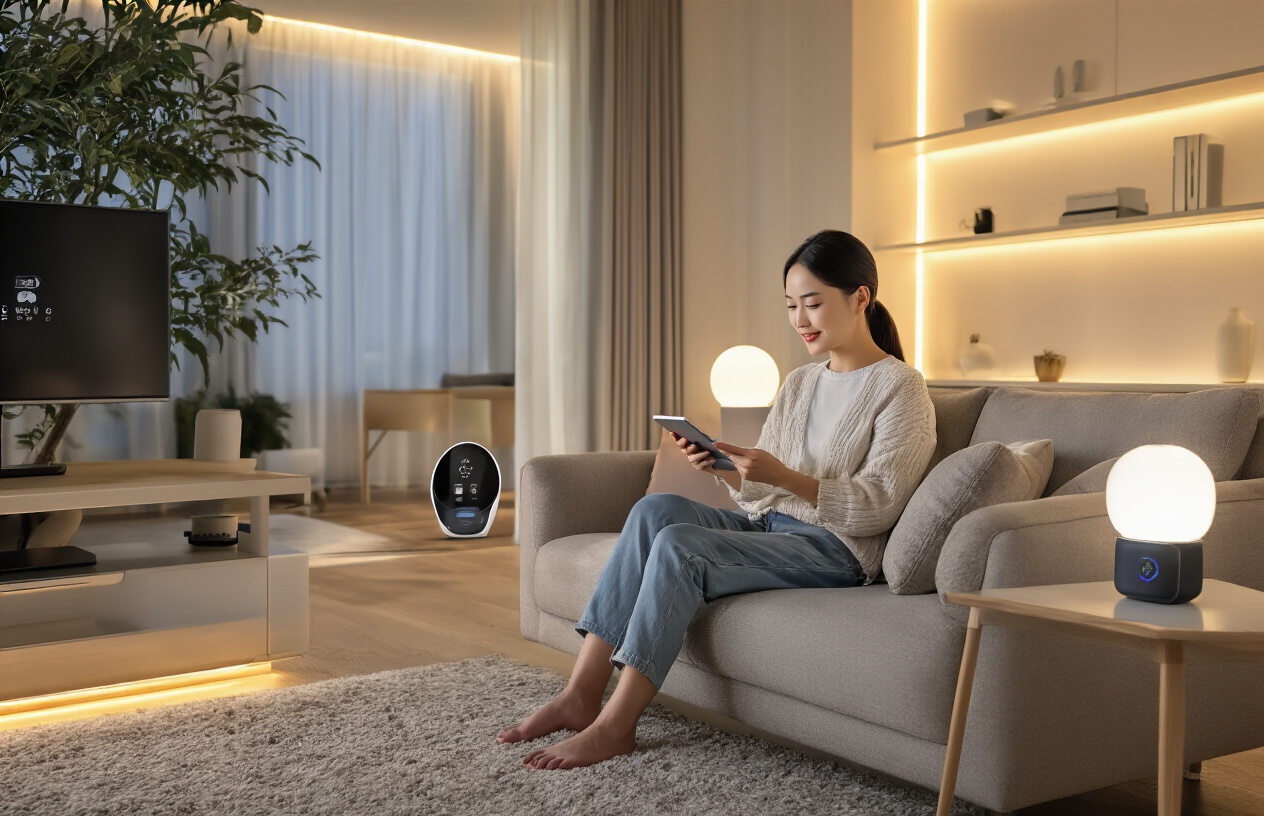
Intelligent climate control adapts to your preferences and schedule
Your home now learns your daily rhythms and adjusts the temperature before you even realize you need it. Modern AI-powered thermostats track your movement patterns throughout the day, noting when you typically wake up, leave for work, and return home. These systems analyze your preferences over time, understanding that you prefer it cooler when you sleep and warmer during your morning routine.
The technology goes beyond simple scheduling. Smart thermostats consider factors like outdoor weather conditions, humidity levels, and even your calendar appointments. If your phone’s calendar shows you’re working late, the system automatically delays heating or cooling your home until closer to your actual arrival time. Some advanced systems even detect when you’re driving home using GPS data and begin adjusting the temperature accordingly.
Energy savings happen naturally through these intelligent adjustments. Rather than maintaining constant temperatures throughout empty rooms, the AI distributes heating and cooling based on occupancy patterns. Room sensors detect which areas of your home are actively being used and redirect climate control resources accordingly. This targeted approach can reduce energy consumption by 15-20% compared to traditional systems.
Automated security systems provide enhanced protection and peace of mind
Smart home AI has transformed security from reactive monitoring to proactive threat detection. Modern systems use computer vision to distinguish between family members, delivery personnel, and potential intruders. Your security cameras now recognize familiar faces and can alert you when unknown individuals approach your property, while ignoring common occurrences like passing pedestrians or neighborhood cats.
The integration between various security components creates comprehensive protection networks. Door locks, window sensors, motion detectors, and cameras communicate with each other to build complete situational awareness. When the system detects unusual activity, it can automatically lock doors, turn on lights, and begin recording while sending real-time alerts to your smartphone.
AI-powered security systems learn your family’s normal patterns and identify deviations that might indicate problems. If doors typically remain locked during certain hours but suddenly show repeated access attempts, the system flags this as suspicious activity. Similarly, if motion is detected in areas that are usually unoccupied during specific times, alerts are generated automatically.
AI-powered appliances optimize energy usage and reduce costs
Your kitchen appliances now make intelligent decisions about energy consumption throughout the day. Smart refrigerators monitor utility rate fluctuations and shift energy-intensive operations like ice making and defrosting to periods when electricity costs are lower. Dishwashers analyze load sizes and soil levels to determine optimal wash cycles, using only the water and energy necessary for effective cleaning.
Washing machines equipped with AI technology examine fabric types, load weights, and soil detection to customize wash and dry cycles. These appliances can even coordinate with your home’s energy management system to operate during peak solar panel production hours or when grid demand is lowest. The result is significant cost savings without any compromise in performance.
Smart water heaters represent another major advancement in energy optimization. These systems learn your hot water usage patterns and heat water just before you need it, rather than maintaining constant high temperatures. They predict demand based on your daily routines and can even account for variations like weekend schedules or vacation periods.
Voice-controlled environments respond to your natural commands
Speaking to your home has become as natural as talking to family members. Modern voice assistants understand context, follow-up questions, and complex multi-step commands. You can say “I’m cold” and the system raises the temperature, dims harsh lighting, and might even suggest closing windows if outdoor temperatures are contributing to the issue.
The sophistication of voice control extends beyond simple device commands. Your AI assistant can coordinate multiple systems simultaneously. Saying “goodnight” might lock doors, turn off lights throughout the house, set the alarm system, adjust the thermostat for sleeping temperatures, and begin playing ambient sounds in the bedroom. These routines adapt based on your preferences and can even account for seasonal changes or special circumstances.
Natural language processing allows for conversational interactions rather than rigid command structures. Instead of memorizing specific phrases, you can communicate with your smart home using everyday language. The system understands variations in how you express the same request and learns your preferred terminology over time.
Transportation Evolution Improves Your Daily Commute

Autonomous vehicles promise safer and more efficient travel
Self-driving cars are moving beyond science fiction and into real-world testing phases across major cities. Companies like Waymo, Tesla, and Cruise are deploying autonomous vehicles that use advanced AI systems to navigate complex traffic scenarios. These vehicles combine cameras, lidar sensors, and machine learning algorithms to make split-second decisions that often surpass human reaction times.
The safety benefits are compelling. Human error accounts for roughly 94% of serious traffic crashes, according to the National Highway Traffic Safety Administration. AI transportation technology eliminates many of these risks by removing distracted driving, drunk driving, and fatigue-related accidents from the equation. Autonomous systems don’t get tired, don’t text while driving, and maintain constant vigilance of their surroundings.
Beyond safety, these vehicles optimize fuel efficiency and reduce emissions through predictive route planning and smooth acceleration patterns. They communicate with traffic infrastructure and other vehicles to coordinate movements, creating a more harmonious flow of traffic. This vehicle-to-everything (V2X) communication represents a fundamental shift in how transportation systems operate.
| Current Transportation | Autonomous Future |
|---|---|
| Human reaction time: 1.5 seconds | AI reaction time: 0.1 seconds |
| 40,000+ annual traffic deaths | Projected 90% reduction |
| Individual vehicle decisions | Coordinated network intelligence |
| Parking space waste | Dynamic vehicle sharing |
AI traffic management reduces congestion and travel time
Smart traffic management systems powered by artificial intelligence 2025 are already transforming urban mobility. These systems analyze real-time data from thousands of sensors, cameras, and connected vehicles to optimize traffic light timing and reroute vehicles around congestion hotspots.
Cities like Los Angeles and Singapore have implemented AI-driven traffic control centers that process millions of data points every second. The systems learn from historical traffic patterns while adapting to unexpected events like accidents, construction, or special events. When a major incident occurs, the AI instantly calculates alternative routes and adjusts signal timing across the entire network to prevent cascade effects.
The results speak for themselves. Pittsburgh’s smart traffic system reduced travel times by 25% and vehicle emissions by 20%. Barcelona’s implementation decreased waiting times at intersections by 21%. These improvements compound throughout the day, saving millions of hours that commuters previously lost to inefficient traffic management.
Machine learning algorithms continuously refine these systems by analyzing:
- Weather patterns and their impact on driving behavior
- Event schedules that affect traffic volume
- Seasonal variations in commute patterns
- Real-time accident and construction data
- Public transportation schedules and ridership
Smart parking solutions eliminate the stress of finding spaces
Finding parking ranks among the most frustrating aspects of urban driving, but AI is solving this age-old problem through intelligent parking management systems. Smart parking platforms use sensors embedded in parking spaces, computer vision cameras, and mobile apps to create real-time parking availability maps.
Cities like San Francisco and Barcelona have installed thousands of smart parking sensors that detect when spaces become available. Drivers receive notifications on their smartphones directing them to open spots, reducing the time spent circling blocks searching for parking. This technology cuts parking search time by up to 43% while reducing traffic congestion and emissions from vehicles hunting for spaces.
AI technology daily life integration extends to dynamic pricing models that adjust parking rates based on demand and location. Popular areas during peak hours cost more, encouraging turnover and ensuring availability. Off-peak times feature lower rates, optimizing space utilization throughout the day.
Private parking operators are deploying license plate recognition systems that automatically bill drivers without requiring parking meters or mobile apps. These systems track entry and exit times, calculate fees, and process payments seamlessly. Some implementations even predict parking demand patterns, helping property owners optimize their pricing strategies and space allocation.
The technology also enables predictive analytics that help urban planners make informed decisions about future parking infrastructure needs. By analyzing usage patterns, cities can identify areas that require additional parking capacity or zones where existing spaces could be repurposed for other uses like bike lanes or green spaces.
Healthcare AI Delivers Personalized Medical Care

Early Disease Detection Through Advanced Diagnostic Tools
AI technology is transforming how doctors catch diseases before symptoms even appear. Modern AI diagnostic tools can analyze medical images with incredible precision, often spotting cancer cells, heart problems, and neurological conditions weeks or months earlier than traditional methods. These systems scan thousands of X-rays, MRIs, and CT scans in minutes, learning to recognize patterns that might slip past even experienced radiologists.
The technology gets smarter every day by processing millions of medical images from patients worldwide. When you get routine screenings now, AI algorithms work alongside your doctor to flag potential concerns immediately. This means faster diagnosis, better treatment outcomes, and often the difference between catching something early when it’s treatable versus waiting until it becomes a serious problem.
Some hospitals now use AI-powered blood tests that can detect over 50 types of cancer from a single sample. These tests analyze DNA fragments floating in your bloodstream, looking for genetic signatures that suggest tumor activity somewhere in your body. The accuracy rates continue improving, with some systems achieving over 99% precision in identifying specific cancer types.
Telemedicine Platforms Provide Instant Access to Healthcare Professionals
Virtual healthcare has exploded beyond simple video calls. AI-powered telemedicine platforms now offer 24/7 access to medical professionals, with intelligent triage systems that assess your symptoms and connect you with the right specialist immediately. These platforms use natural language processing to understand your concerns and match you with doctors who have the exact expertise you need.
The AI assistance doesn’t stop at scheduling. During virtual consultations, real-time AI tools help doctors by suggesting relevant questions based on your symptoms, recommending diagnostic tests, and even identifying potential drug interactions with your current medications. This technology ensures you receive comprehensive care even when meeting with a doctor virtually for the first time.
Many platforms now offer AI-powered symptom checkers that guide you through detailed health assessments before your appointment. These tools gather crucial information about your condition, medical history, and current symptoms, creating a comprehensive picture that helps doctors provide better care during shorter consultation windows.
Personalized Treatment Plans Based on Your Genetic and Lifestyle Data
Your DNA holds the blueprint for how your body responds to different treatments, and AI is finally making this information actionable. Pharmacogenomics – the study of how genes affect drug response – is becoming mainstream thanks to AI algorithms that can analyze your genetic profile and predict which medications will work best for your specific biology.
These systems consider not just your genetic markers but also your lifestyle data from fitness trackers, sleep monitors, and even smartphone usage patterns. The AI creates detailed profiles that show how factors like your exercise habits, stress levels, sleep quality, and daily routines affect your health outcomes. This comprehensive approach leads to treatment plans tailored specifically for your unique situation.
For chronic conditions like diabetes, heart disease, and autoimmune disorders, AI analyzes continuous data streams from wearable devices to adjust treatment recommendations in real-time. Your medication dosages, exercise routines, and dietary suggestions evolve based on how your body responds day by day, creating a truly personalized healthcare experience.
Mental Health Support Through AI-Powered Therapeutic Applications
Mental health care is experiencing a revolution through AI applications that provide immediate support when traditional therapy isn’t available. These apps use conversational AI to offer cognitive behavioral therapy techniques, mood tracking, and crisis intervention support around the clock.
The technology has advanced beyond simple chatbots to include sophisticated emotional recognition systems that analyze your speech patterns, typing rhythms, and even facial expressions to gauge your mental state. These insights help the AI provide more targeted support and alert human professionals when additional intervention might be needed.
AI-powered therapy apps now offer personalized meditation sessions, breathing exercises, and mindfulness practices based on your specific stress triggers and emotional patterns. The systems learn what techniques work best for you and adapt their recommendations accordingly, creating a highly personalized mental health toolkit that’s always accessible.
Medication Management Systems Prevent Dangerous Interactions
Prescription errors and dangerous drug interactions cause thousands of preventable hospitalizations each year. AI medication management systems are solving this problem by creating comprehensive safety nets that monitor every aspect of your prescription regimen.
These systems track all your medications – including over-the-counter drugs and supplements – and instantly alert you and your healthcare providers about potential interactions. The AI considers factors like your age, weight, kidney function, and other health conditions to provide personalized safety recommendations.
Smart pill dispensers connected to AI systems can automatically adjust dosing schedules, send medication reminders to your phone, and even detect when you’ve missed doses. Some advanced systems can communicate with your doctors to adjust prescriptions based on how well you’re adhering to your current regimen and how your body is responding to treatments.
The technology also helps identify medication allergies and adverse reactions by analyzing patterns across millions of patient records, providing early warnings about drugs that might cause problems for people with similar profiles to yours.
Financial Services Become More Intelligent and Secure

Fraud Detection Protects Your Assets in Real-Time
Your bank account gets better protection every single day thanks to AI systems that never sleep. Modern fraud detection works around the clock, scanning millions of transactions to spot suspicious patterns before criminals can drain your funds. These intelligent systems learn from every purchase you make, building a detailed picture of your spending habits and identifying when something doesn’t look right.
When you buy your morning coffee at the same café every Tuesday, AI notes this pattern. If someone tries to use your card at 3 AM for expensive electronics across town, the system immediately flags this as suspicious. The technology analyzes hundreds of factors simultaneously – location data, purchase amounts, merchant types, and timing – to make split-second decisions about transaction legitimacy.
Machine learning algorithms get smarter with each fraudulent attempt they catch. Banks now block suspicious transactions before they complete, sending instant alerts to your phone for verification. This real-time protection means you’ll know about potential fraud within seconds, not days or weeks later when checking your statement.
Credit card companies report that AI-powered fraud detection systems catch 85% more fraudulent transactions than traditional methods while reducing false positives by 70%. This means fewer legitimate purchases get declined while actual fraud attempts get stopped cold.
Automated Investment Advice Optimizes Your Portfolio Performance
Robo-advisors have transformed how everyday people build wealth, bringing sophisticated investment strategies that were once exclusive to millionaires. These AI financial services platforms analyze your financial goals, risk tolerance, and time horizon to create personalized investment portfolios that automatically adjust to market conditions.
The technology continuously monitors your investments, rebalancing portfolios when asset allocations drift from target percentages. If your stock holdings grow faster than bonds, the system automatically sells some stocks and buys bonds to maintain your desired risk level. This disciplined approach removes emotional decision-making that often hurts investment returns.
AI-powered platforms can process vast amounts of market data, economic indicators, and company fundamentals to make investment decisions faster than any human advisor. They consider factors like upcoming earnings reports, economic policy changes, and global market trends when adjusting your portfolio mix.
Popular robo-advisors charge fees between 0.25% and 0.50% annually, compared to traditional financial advisors who typically charge 1% or more. This cost savings means more of your money stays invested and compounds over time, potentially adding thousands of dollars to your retirement savings.
Instant Loan Approvals Streamline Your Financial Decisions
Gone are the days of waiting weeks for loan approval decisions. AI algorithms now evaluate loan applications in minutes, analyzing hundreds of data points to assess creditworthiness more accurately than traditional methods. These systems look beyond credit scores to consider your full financial picture, including spending patterns, income stability, and debt management history.
Machine learning models can predict loan default risk by examining factors human underwriters might miss. The technology considers your transaction history, seasonal income variations, and even social media activity patterns to build comprehensive risk profiles. This deeper analysis often helps people with limited credit history get approved for loans they might otherwise be denied.
Digital lenders use AI to offer personalized loan terms based on your specific financial situation. Instead of one-size-fits-all interest rates, you might get customized payment schedules that align with your income patterns or seasonal work cycles. This personalization helps reduce default rates while making loans more affordable for borrowers.
The speed of AI-driven approvals means you can secure financing for time-sensitive opportunities like home purchases, business investments, or emergency expenses without lengthy delays. Some platforms now offer pre-approval decisions in under five minutes, letting you shop with confidence knowing your financing is already arranged.
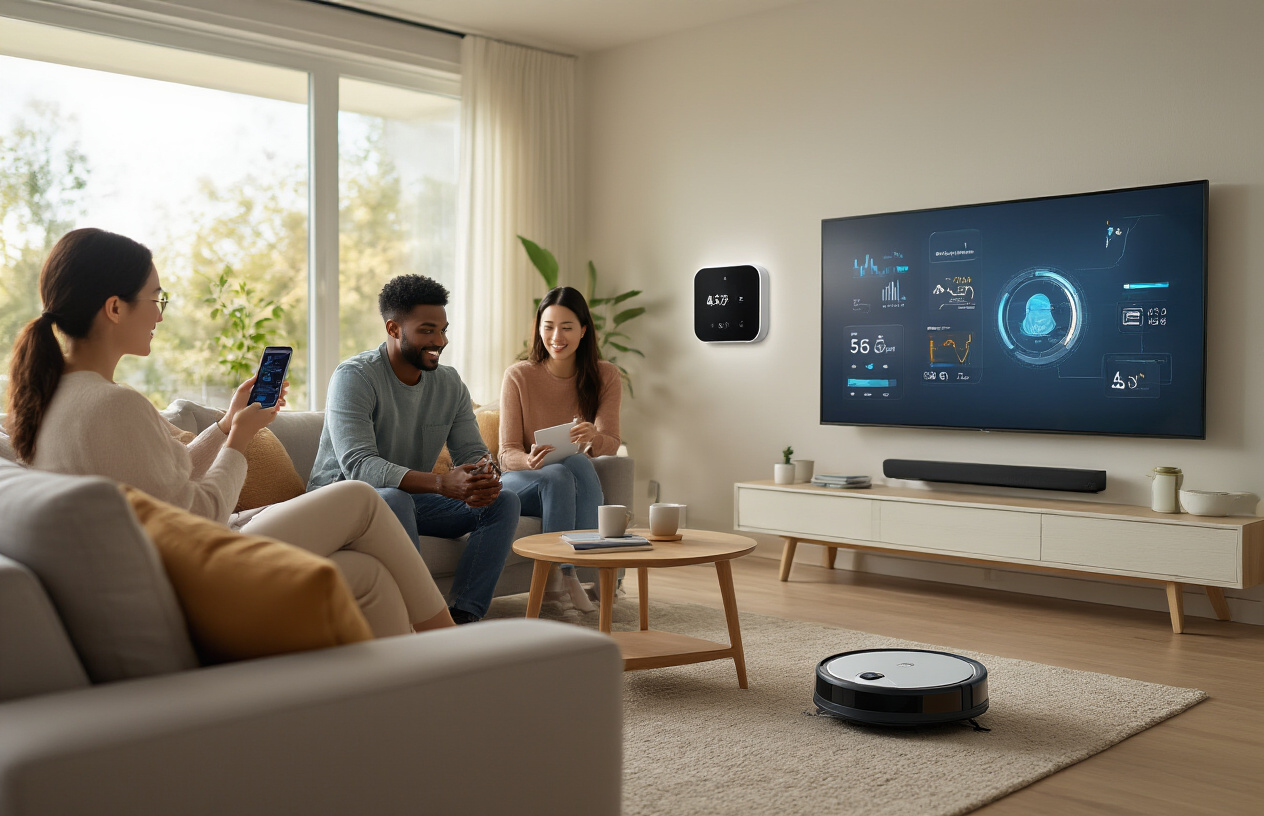
AI has quietly woven itself into nearly every aspect of our daily routines, from the way we chat with friends and family to how we manage our homes and health. The technology is making our conversations smoother through smart translation tools, personalizing our shopping experiences with spot-on recommendations, and turning our living spaces into responsive environments that adapt to our needs. Your morning commute is getting easier with intelligent traffic systems, while your bank account stays safer thanks to AI-powered security features.
The real game-changer isn’t just that AI exists—it’s how naturally it’s becoming part of what we do every day. Your doctor can now offer more personalized treatment plans, your smart home anticipates what you need before you ask, and your daily tasks are becoming more efficient without you having to think about it. As we move through 2025, staying aware of these changes helps you make better choices about which AI tools to embrace and how to use them to improve your life while staying in control of your personal information.
